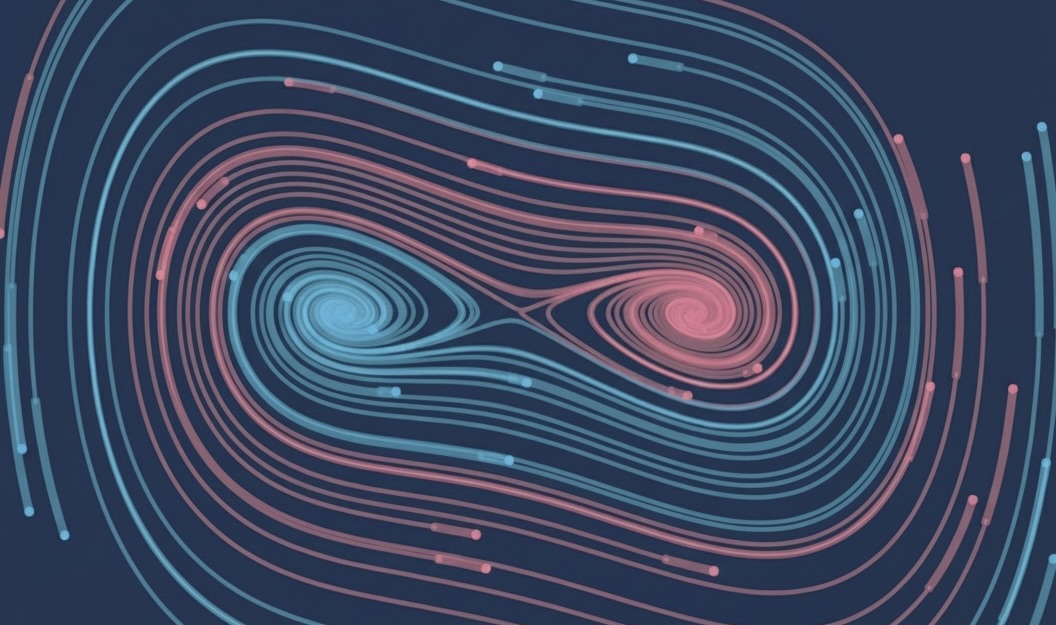Physics-uninformed machine learning

Time-series foundation models
Can pre-trained transformers forecast a chaotic system without being trained on the same system?
- Y. Zhang and W. Gilpin, Zero-shot forecasting of chaotic systems, ICLR 2025
- Y. Zhang† and W. Gilpin, Context parroting: A simple but tough-to-beat baseline for foundation models in scientific machine learning, ICLR 2026
Out-of-domain generalization
Can neural networks extrapolate without structural priors?
- D. A. Norton, Y. Zhang, and M. Girvan, Learning Beyond Experience: Generalizing to Unseen State Space with Reservoir Computing, Chaos 35, 103146 (2025)
Reservior computing
Reservoir Computing (RC) is a simple and efficient model-free framework for forecasting the behavior of nonlinear dynamical systems from data. I am interested in understanding the success as well as identifying limitations of RC.
- Y. Zhang and S. P. Cornelius, Catch-22s of reservoir computing, Phys. Rev. Research 5, 033213 (2023)
- Y. Zhang, E. R. Santos, H. Zhang, and S. P. Cornelius, How more data can hurt: Instability and regularization in next-generation reservoir computing, Chaos 35, 073102 (2025)
- D. A. Norton, Y. Zhang, and M. Girvan, Learning Beyond Experience: Generalizing to Unseen State Space with Reservoir Computing, Chaos 35, 103146 (2025)
Causal inference
Can we infer causal hypergraphs from time-series data in a model-free fashion? How important are higher-order interactions in the brain?
- R. Delabays, G. De Pasquale, F. Dörfler, and Y. Zhang, Hypergraph reconstruction from dynamics, Nat. Commun. 16, 2691 (2025)
Koopman learning
Can DMD automatically identify glassy dynamics (e.g., algebraic relaxation) from high-dimensional data?
- Z. G. Nicolaou, H. Cho, Y. Zhang, J. N. Kutz and S. L. Brunton, Signature of glassy dynamics in dynamic modes decompositions, arXiv:2502.10918
Can information theory help us find a good representation to learn Koopman operators?
- X. Cheng, W. Yuan, Y. Yang, Y. Zhang, S. Cheng, Y. He, and Z. Sun, Information Shapes Koopman Representation, ICLR 2026
Reinforcement learning
Can we use reinforcement learning (RL) to improve synchronization? Would the solutions found by RL be interpretable?
- Z. Chen, T. Anglea, Y. Zhang and Y. Wang, Optimal synchronization in pulse-coupled oscillator networks using reinforcement learning, PNAS Nexus 2, pgad102 (2023)